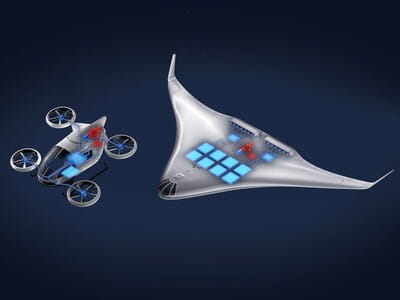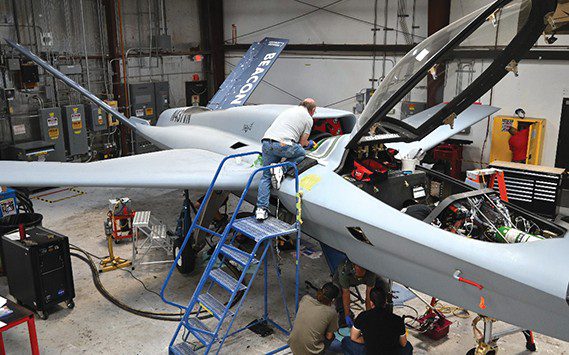
Pratt & Whitney and Collins Aerospace have made significant progress on advancing hybrid-electric propulsion through the Scalable Turboelectric Powertrain Technology (STEP-Tech) demonstrator, which completed its first engine run and electrical system integration test.
As a modular and scalable demonstrator platform, STEP-Tech is intended for rapid prototyping of distributed propulsion concepts applicable to a wide range of next generation applications, including advanced air mobility vehicles, high-speed eVTOL and blended wing body aircraft.
“Hybrid-electric propulsion is a key part of RTX’s roadmap for enabling more sustainable aviation, with the potential to enhance efficiency across many future aircraft applications, from advanced air mobility to regional aircraft and single-aisles,” said Mark Russell, chief technology officer, RTX. “Harnessing deep expertise from Pratt & Whitney, Collins Aerospace and Raytheon Technologies Research Center in the fields of both aircraft propulsion and electrical systems, RTX is leading the development of hybrid-electric technology through multiple demonstration programs, including STEP-Tech.”
Conducted at the Raytheon Technologies Research Center in East Hartford, Conn., the successful test included the first run of STEP-Tech’s turbogenerator loaded at partial power. This was followed by an electrical system test where the battery and supercapacitor energy storage systems were integrated with the high voltage distribution system. STEP-Tech will next progress testing to a full-power turbogenerator run and validation of the electric fans (propulsors) through the high voltage electrical system.
Raytheon Technologies is also advancing hybrid-electric propulsion as part of its hybrid-electric flight demonstrator program, supported by the governments of Canada and Quebec, and the Sustainable Water-Injecting Turbofan Comprising Hybrid-Electrics (SWITCH) consortium, supported by the European Union’s Clean Aviation Joint Undertaking.
These demonstrator programs are part of a companywide strategy to develop a broad portfolio of sustainable aviation technologies, leveraging collaboration across RTX’s business units and through wider industry and public-private partnerships. The strategy recognizes the importance of continually advancing aircraft efficiency and enabling wider use of Sustainable Aviation Fuels to support the industry’s goal of achieving net-zero CO2 emissions for civil aviation by 2050.











